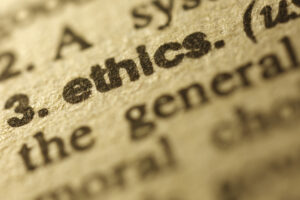 A lot has happened in 2021, not the least of which has been the continued shift to remote work. Now that we’re well into the second year of the pandemic, working remotely has become commonplace, even in the legal profession. In fact, according to the results of MyCase’s “Legal Industry Report 2021: Lessons Learned from the Pandemic,” more than half of the legal professionals surveyed (53%) reported that their firms would allow lawyers and law firm staff to work remotely full-time once their offices fully reopened. And nearly three-quarters (70%) shared that their firms would allow attorneys and staff to work remotely part-time once reopened. (Note: I am the legal technology evangelist for MyCase.)
A lot has happened in 2021, not the least of which has been the continued shift to remote work. Now that we’re well into the second year of the pandemic, working remotely has become commonplace, even in the legal profession. In fact, according to the results of MyCase’s “Legal Industry Report 2021: Lessons Learned from the Pandemic,” more than half of the legal professionals surveyed (53%) reported that their firms would allow lawyers and law firm staff to work remotely full-time once their offices fully reopened. And nearly three-quarters (70%) shared that their firms would allow attorneys and staff to work remotely part-time once reopened. (Note: I am the legal technology evangelist for MyCase.)
This transition to the acceptance of remote work has been so dramatic that in 2021 an increasing number of ethics committees across the country addressed the ethical issues related to working remotely, with many giving it the green light. I wrote about some of these opinions earlier in the year. Over the past few months, a number of additional opinions were released that focused on the ethical issues triggered when lawyers practice law remotely.
Most recently, a New Jersey joint opinion was handed down in October: Committee on the Unauthorized Practice of Law Opinion 59/Advisory Committee on Professional Ethics Opinion 742. In this opinion, the committees considered the ethical issues presented when lawyers work remotely from New Jersey but are not licensed in New Jersey. The committees determined that those lawyers do not have a “continuous and systematic presence” in New Jersey sufficient to trigger the prohibition against “engaging in the unauthorized practice of New Jersey law” as long as they are not exhibiting “outward physical manifestations of presence.”
Then, there’s the opinion issued by the Delaware State Bar Association Committee in July: Professional Ethics Formal Opinion 2021-1. The committee gave lawyers licensed to practice law in Delaware — but who were working remotely from another jurisdiction — the green light to do so, with one important caveat. According to the committee, Deleware lawyers may practice law remotely from out of the state, but only if “the law of the local jurisdiction does not prohibit such conduct, and such lawyers do not hold themselves out publicly as a lawyer in that jurisdiction or offer to or accept representation of clients in that jurisdiction.”
Finally, there’s California’s take on remote working issues in Formal Opinion Interim No. 20-0004. In this opinion, the State Bar of California Standing Committee of Professional Responsibility and Conduct considered this question: “What are a California lawyer’s ethical duties when working remotely in response to the COVID-19 pandemic or another disaster situation?”
In reaching its determination, the committee focused on a number of different ethical obligations, including the duty of confidentiality and the duty of competence. Notably, in addressing the duty of confidentiality, the committee acknowledged that in 2021, it is clear that lawyers may ethically use cloud computing software in their practices. The committee explained that “(l)aw firm(s) may use third-party cloud providers to store or backup confidential client files or other technology solution vendors to facilitate remote practice,” and emphasized that prior to doing so, it’s necessary to properly vet the providers prior to using the technology.
The committee ultimately concluded that: “Lawyers may ethically practice remotely under the California Rules of Professional Conduct and the State Bar Act, provided they continue to comply with these rules, including the duties of confidentiality, competence, communication, and supervision. Lawyers should implement reasonable measures to ensure compliance that are tailored to the relevant circumstances and remote working environment.”
In other words, the times they are a-changin’. The pandemic ushered in a new era, one in which remote work and practicing law from jurisdictions in which you’re not licensed is par for the course. As a result, ethics committees across the country are, at long last, acknowledging the realities of 21st century law practice and more appropriately applying the ethics rules in ways that allow lawyers to take advantage of the many benefits of technology. It’s too bad it took a worldwide pandemic to get us here.
Nicole Black is a Rochester, New York attorney and Director of Business and Community Relations at MyCase, web-based law practice management software. She’s been blogging since 2005, has written a weekly column for the Daily Record since 2007, is the author of Cloud Computing for Lawyers, co-authors Social Media for Lawyers: the Next Frontier, and co-authors Criminal Law in New York. She’s easily distracted by the potential of bright and shiny tech gadgets, along with good food and wine. You can follow her on Twitter at @nikiblack and she can be reached at [email protected].






